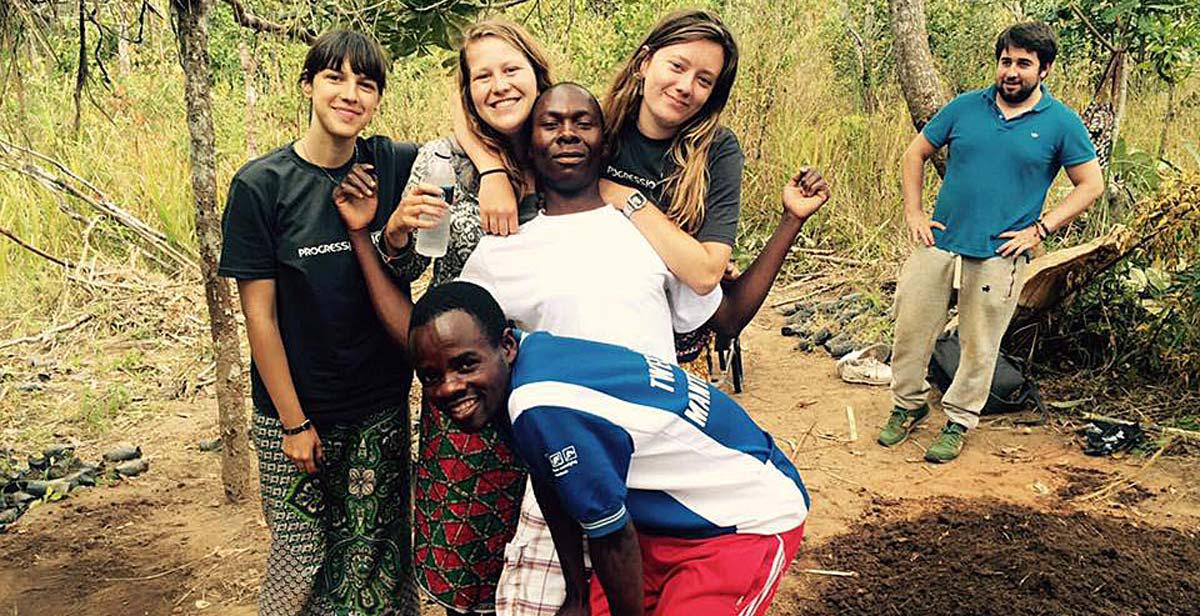Group dynamics have always interested me. In a group in which there are eight young women from the UK - all fairly feisty in our individual ways - and seven males (now six due to the national Team Leader being offered an exciting employment opportunity - we'll miss you Lomance! Keep doing your thing!), two coming from the UK and five from Malawi, it was quite inevitable that gender would be a bit of a hot topic.
My team mates Jess and Wissicki led our first gender learning session in the second week. They read out jobs/tasks and asked people to position themselves to indicate whether they felt it was a female's job, a male's job, or both. I really enjoyed this session - it made me consider the ways in which my family upbringing is quite different to the norm in the UK in terms of defined gender roles and it definitely sparked some necessary debate, although I got the impression that some people were indicating what they believe is the case, and others were indicating what they believe should be the case. People also didn't have an equal opportunity to explain their response and there was a risk of people following the crowd to give the response that would be deemed most acceptable within the group.
During my one-to-one with my Team Leader, Jennie, we discussed how I can sometimes struggle to ensure my voice is heard in a group setting and that this is something that I would like to develop in. I am passionate about gender equality and because it is such a huge topic (not to mention one of the Sustainable Development Goals) I believed that it would be beneficial for the team for us to have more time to discuss the issues in a format that allowed opportunity for, and actively promoted, respectful discussion and reflection. I decided to do this in two parts: the first comprising of me reading out statements relating to gender (for example, “Women have more empathy than men”, “Men are more assertive than women” and “Men are naturally better providers than women”) and asking people to put hands up in order to respond with whatever they think or feel about the statement. I decided to try and be strict with the hands up rule and limit the amount of responses I took to try and encourage people to be mindful of what they were saying, and to listen to one another without the need (or - to be more accurate - freedom) to necessarily bite back if an opinion was voiced that differed to one's own.
I was really pleased with this part of the session because people got very engaged with it and it enabled us to learn about each other’s experiences of and opinions about gender roles. It triggered some thought provoking discussions about whether gender-associated traits were a result of nature or nurture and I believe it challenged some of our preconceptions about each other's views. I feel this is important because it helped us to appreciate the diversity within the team, not necessarily between national and the UK volunteers, but between one another as extremely complex individuals.
In the second part of the session, I gave a presentation, which provided some statistical information about gender inequality throughout the world, addressed some of the statements discussed in the first part, offering examples of relevant research on the issue, and ended with some open questions for people to reflect on. On the day, I was regretting having decided to give a presentation due to my lack of confidence in my presenting skills and the impossibility of doing the topic real justice by covering everything relevant. However, on reflection, I think it was personally beneficial for me to do so because it meant that throughout the whole session I forced myself into two distinct positions: one in which I had to severely limit my input and focus on just listening, and another in which I was able to present my own knowledge and put myself in that uncomfortable position of being the focus of attention. Some of my team mates told me afterwards that they had learnt something from the presentation, which was a relief, and the feedback during our review session was overwhelmingly positive.
Overall my experience of delivering the learning session was very positive, but it's important to note that this is due to being a part of a team who are genuinely interested in learning about one another and the reasons for our differing views. I feel extremely grateful to have had the opportunity to learn from and laugh on a daily basis with such an interesting and enriching mish-mash of personalities, who regularly surprise and inspire me in their different ways. Big up, Team BiriWiri!
Written by ICS volunteer Letty Carey



